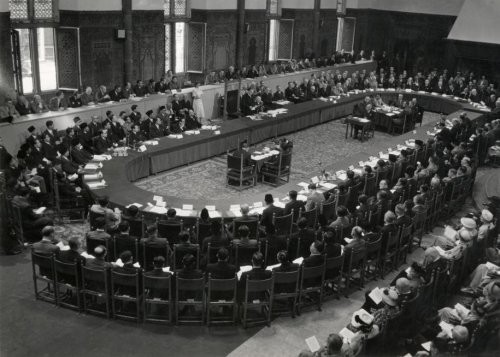
After Japan's defeat in the Pacific War, Indonesian leaders immediately took advantage of the power vacuum and proclaimed Indonesian independence. The Dutch, who felt that they were the rightful owners of Indonesia and part of the victors of the Second World War, did not accept this and planned to retake Indonesia.
The Dutch then launched a series of military aggressions into Indonesian territory. As a result, the young republic experienced various difficulties at the beginning of its journey as a nation. Starting from moving the capital, to forming an emergency government due to the arrest of state officials by the Dutch military.
The Dutch military aggression against the territory of a sovereign country has been criticized by the international community. The diplomatic struggle of Indonesian diplomats at the United Nations succeeded in generating support for Indonesia.
The Netherlands, which was pressed by international and domestic pressure, finally agreed to hold a Round Table Conference to discuss the transfer of power in Indonesia. The Netherlands calls it a transfer of sovereignty, but Indonesia calls it an acknowledgment of sovereignty.
The photo above shows the atmosphere of the Round Table Conference in The Hague on August 23, 1949. The deadlock in these negotiations was related to the transfer of the Dutch East Indies debt to the Indonesian government and the status of West Papua. However, this was finally resolved and the Dutch agreed to leave Indonesia at the end of 1949.
Comments